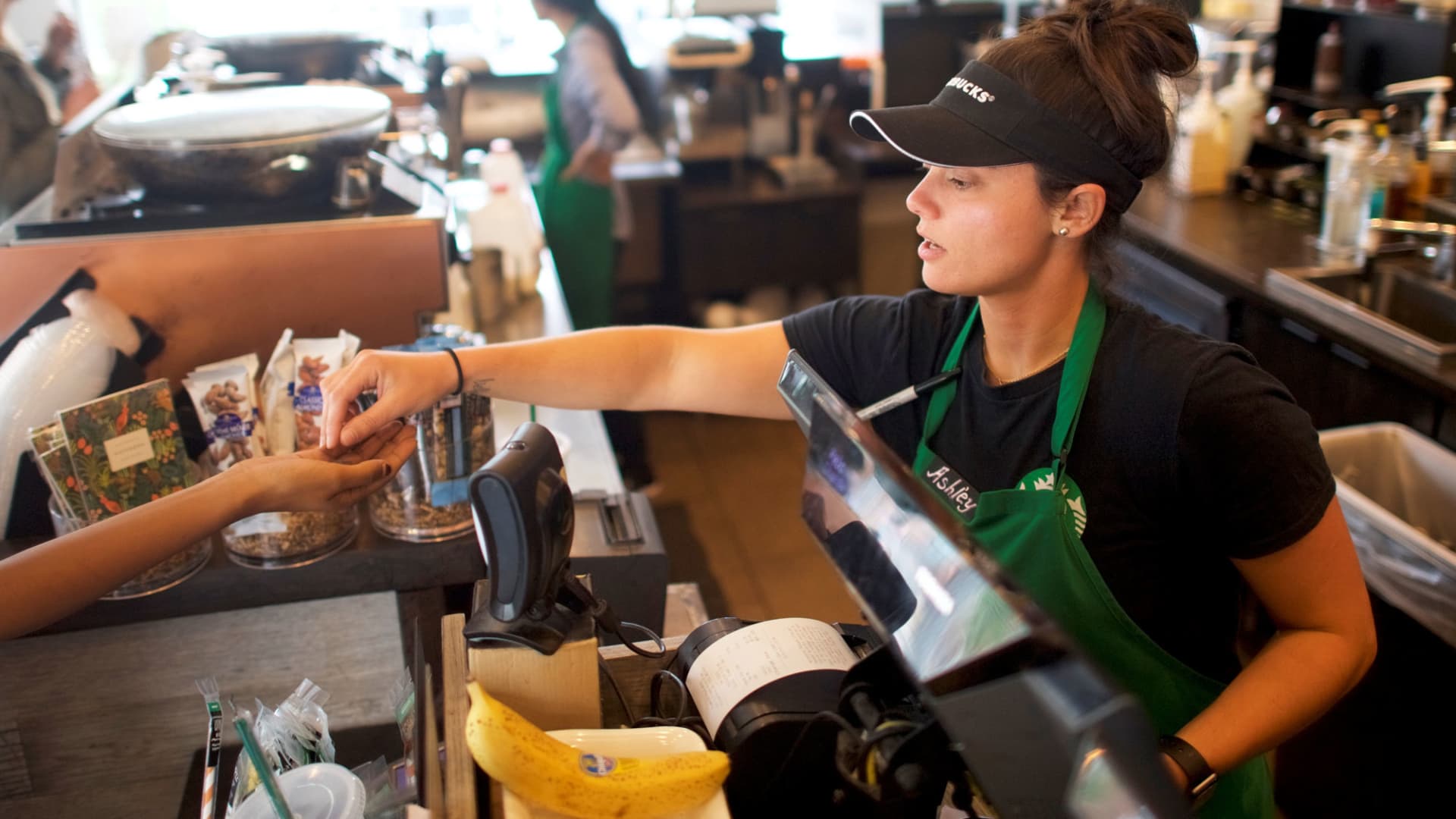
Starbucks said it will hike wages for tenured workers and double training for new employees as the company and its CEO, Howard Schultz, seek to beat back the union push from its baristas.
However, the coffee giant will not offer the enhanced benefits to workers at the roughly 50 company-owned cafes that have voted to unionize. Such changes at unionized stores would have to come through bargaining, Starbucks said.
“So, partners will receive these pay, benefits and store-improvement investments at all U.S. company-operated stores where Starbucks has the right to unilaterally make these changes,” the company said in a statement. “However, at stores where workers have union representation, federal law requires good faith bargaining over wages, benefits and working conditions which prohibits Starbucks from making or announcing unilateral changes.”
In total, Starbucks plans to spend $1 billion on wage hikes, improved training and store innovation during fiscal 2022, which ends in the fall. On Schultz’s first day back at the helm of the company, he suspended its buyback program to invest in workers and stores.
“The transformation will accelerate already record demand in our stores,” Schultz said on the company’s conference call on Tuesday. “But the investments will enable us to handle the increased demand — and deliver increased profitability — while also delivering an elevated experience to our customers and reducing strain on our partners.”
It’s Schultz’s third go-round as Starbucks CEO. He is working on an interim basis until the company hires a successor for the recently retired Kevin Johnson.
Schultz told store managers last month that the company was reviewing its benefits for workers. However, he said the new benefits legally couldn’t be extended to stores that have voted to unionize without separately negotiated contracts for unionized workers. The Starbucks union, Starbucks Workers United, filed a complaint with the National Labor Relations Board about his comments.
This marks the third wage increase to baristas’ paychecks since company-owned stores in Buffalo, New York, filed a petition to unionize. In October, under the leadership of Johnson, Starbucks announced two wage hikes that would bring its pay floor up to $15 an hour by August.
The latest round of hikes is for tenured workers and managers. Employees who have been with the company between two to five years will receive either a 5% increase or get paid 5% above the market’s start rate, earning whichever rate is higher. Workers with more than five years of tenure will get a 7% increase or get paid 10% above the market’s start rate, earning whichever rate is higher.
Starbucks also said it would double the planned investments in pay for store managers, assistant store managers and shift managers hired as of Monday. Those changes amount to one-time adjustments to base pay, and the employees would still receive the raises planned for fiscal 2023 this fall.
Starbucks also said it would double the amount of training that new baristas and shift supervisors receive based on feedback from employees during listening sessions attended by Schultz and other top executives.
More investments are also planned. The company said it will introduce credit and debit card tipping by late 2022, and it is planning equipment and technology enhancements, like upgrading in-store iPads and accelerating the rollout of new ovens and espresso machines.
Schultz’s willingness to wage an aggressive and expensive campaign against unionizing workers hasn’t drawn much support from Wall Street. Starbucks shares have fallen 19% since his return early last month.
Starbucks’ stock rose 3% in extended trading after the company reported its fiscal-second quarter results. Strong sales growth in the U.S. offset sharp declines in China, helping the company top Wall Street’s estimates for revenue and meet earnings expectations.




